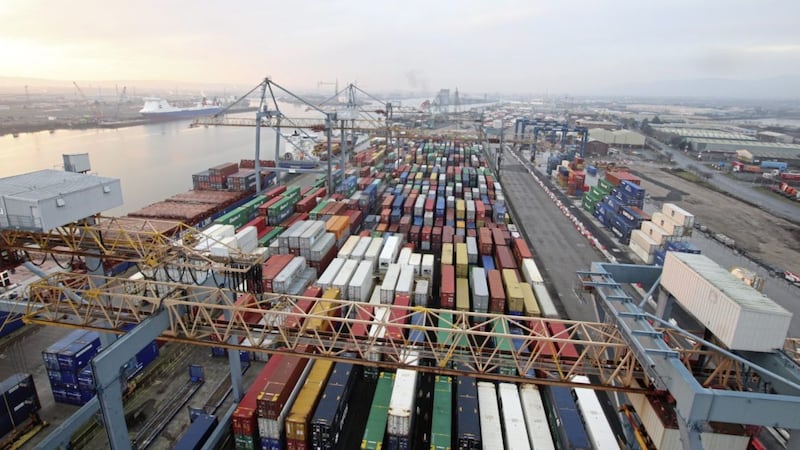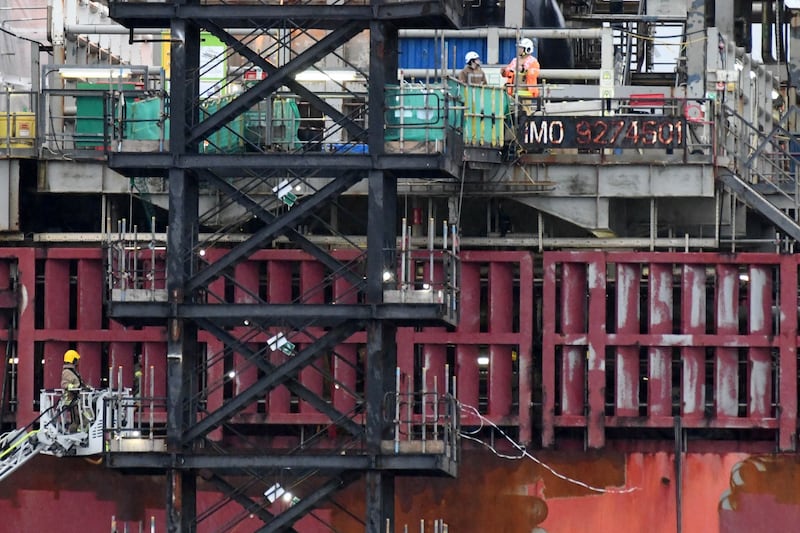STOCKPILING in the lead up to the end of the Brexit transition period helped Belfast Harbour largely weather the storm of Covid-19, according to the port’s latest annual results.
Turnover fell by 4.7 per cent to £62.8 million for the year ending December 31 2020, with the £29.7m operating profit in 2020 just 2.6 per cent down on 2019.
The trust port said the decline in revenue was largely the result of the impact on the tourism and leisure trade, notably from the loss of 128 cruise ships due to dock in the city during 2020 and the restrictions on its AC by Marriott Hotel, which saw a £3.6m fall in turnover last year.
But 23.5 million tonnes of cargo still passed through the harbour in 2020, just three per cent down on 2019.
And despite the introduction of the protocol in January this year, a strategic report produced by the Harbour Commissioners said initial trading in early 2021 has been broadly in line with early year trading patterns for previous years.
But, they said that has largely been the result of grace periods for certain goods.
“Significant risks and uncertainties remain, particularly from the ending of the grace periods,” states the report.
Bulk cargo actually increased last year, with stockpiling pushing grain and animal feed imports up by 11 per cent to 2.3 million tonnes
The introduction of home working resulted in a fall in road fuel imports, but a rise in home heating oil.
Meanwhile, the export of aggregates hit record levels in 2020.
But Belfast Harbour, which is among the north’s biggest landlords, took a £11.6m hit in 2020 as a result of the revaluation of its investment property portfolio for the first time in three years. It left the total value of the estate property at just under £179m.
Outgoing chairman David Dobbin said the decline was largely caused by the impact of Covid-19 on market values.
That left pre-tax profits at £18.2m for 2020, down 41.3 per cent from 2019.
Belfast Harbour said £43.2m was invested in port facilities and estate projects during 2020, up 3.6 per cent on 2019, with £87.4 million committed to future projects, including a major expansion at the harbour’s film studios.
Chief executive of Belfast Harbour, Joe O’Neill, said: “In spite of the unprecedented challenges during 2020, Belfast Harbour produced a solid and resilient financial performance.
“Initial impacts from Covid-19 were substantially recovered by most trade sectors by the fourth quarter of the year and we are encouraged by the levels of trade seen in the first half of 2021."
David Dobbin added: “Without doubt, 2020 was one of the most challenging years in recent memory with the Covid-19 pandemic impacting on every part of our society.
“Despite the impact of Covid-19 on port trade and estate activity, turnover and profit both remained healthy and during the year Belfast Harbour was able to invest more than £40 million on port facilities and estate projects. We are a Trust Port, which means that we reinvest our all profits in port infrastructure and regeneration projects that benefit everyone in Northern Ireland. "







